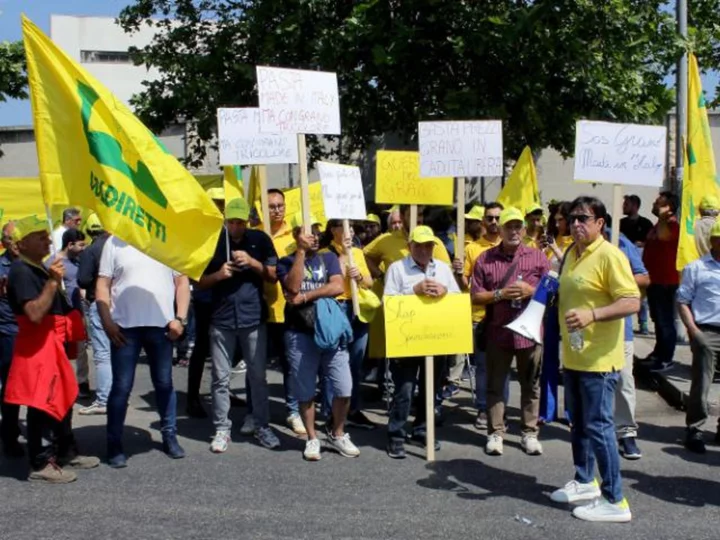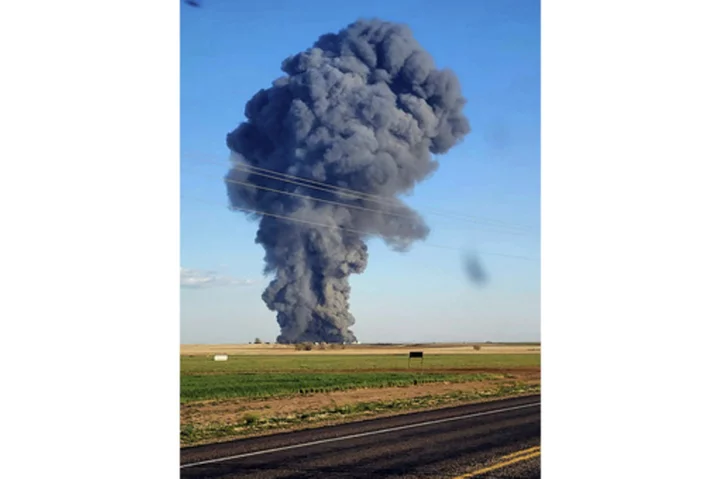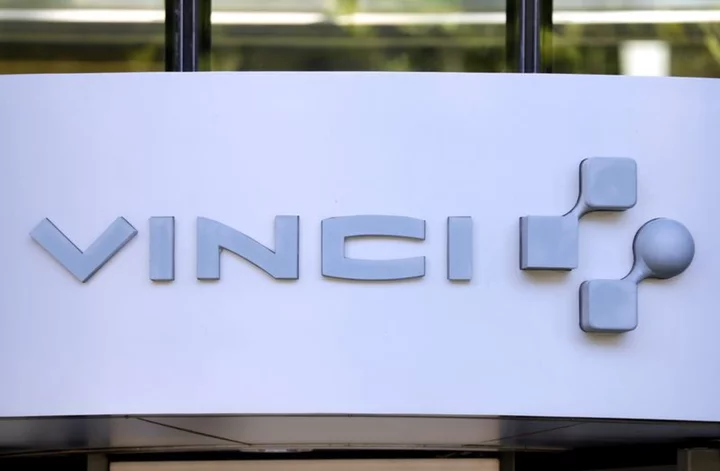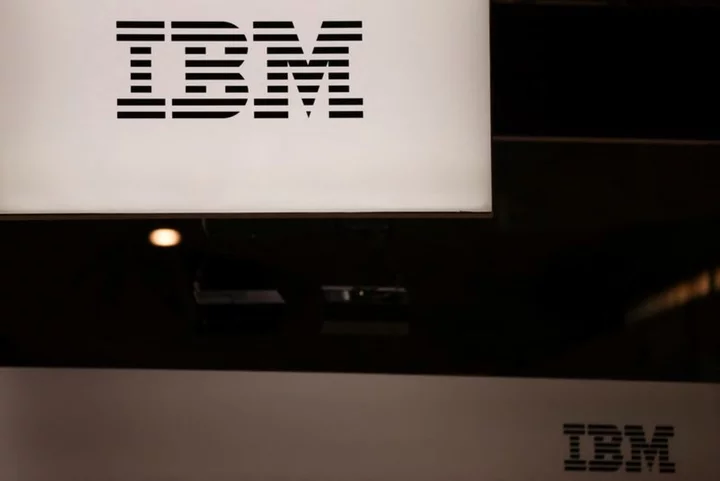Italians were supposed to be on a "pasta strike" this week but it was called off after prices for the national staple started to fall. Zoom out, though, and global food prices are still far higher than a year ago, despite precipitous drops in the cost of key raw materials.
Assoutenti, an Italian consumer rights group, had accused food producers of profiteering and urged shoppers not to buy any pasta for nine days this month, starting last Thursday. But it shelved the plan, citing "noticeable" falls in pasta prices.
Pasta prices dipped in May compared with April, though provisional official data released Wednesday showed that they ticked up again this month. Compared with last year, prices jumped by just over 12% in June.
Broader food price inflation, albeit slowing, is still high in Italy and elsewhere.
Food price rises in the 20 countries that use the euro eased to 12.5% in May, from 13.5% the previous month, while in the United Kingdom, annual food inflation declined to 18.4% from 19% in April. The trend is more pronounced in the United States, where grocery prices increased by only 5.8% in May, after outright falls in March and April.
But the numbers are cold comfort to hard-up consumers. Prices are still high, despite recent dramatic drops in the cost of inputs like energy and wheat.
In the UK, a block of cheddar cheese was 38% more expensive in May than a year before. In France, over the same period, the cost of fresh vegetables rose 18%, and in the US margarine was up 17%. In Germany, food prices continued to show above-average increases, clocking an estimated 13.7% rise this month, the country's statistics office said Thursday.
Concerns have grown that retailers and food producers are deliberately keeping prices high to boost profit margins — claims they strenuously deny.
So what gives?
Time lag
It has been 18 months since Russia launched its full-scale invasion of Ukraine in late February 2022. Food and fuel prices, which were already rising around the world, soared as a result.
But global commodity markets have since given up those gains. Prices for both wheat and Brent crude oil — which feeds into food production and transportation costs — are about a quarter below their levels before the war. The wholesale price of natural gas, a key ingredient of fertilizers, is down 36% from its level immediately before the invasion.
Even so, it can take time for these falls to show up in retail prices, Danni Hewson, head of financial analysis at investment firm AJ Bell, told CNN.
"It takes time for food to make the journey from field to fork, with some heavily processed foods taking months to find [their] way to our supermarket shelves," she said. "The stuff in tins and tubs today was probably made with ingredients sourced last year with last year's price tag."
"Supermarkets themselves sign long-term deals with suppliers at a price that can only be amended once, and that change would have been made in the immediate aftermath of Russia's invasion of Ukraine," she added.
Bank of England Governor Andrew Bailey said Wednesday that one of the consequences of the surge in energy and other commodity prices last year was that many UK businesses had "bought forward supplies to a much greater extent" than usual. That meant they had "locked in higher prices" for longer, he told a gathering of central bankers in Portugal.
Costs of other inputs are also historically high, or increasing.
According to Mintec, a commodities data firm, the cost of packaging across Europe, while down from spring last year, is still nearly a third higher than its five-year average before the pandemic.
Given "exceptional" price rises in the aftermath of the Ukraine war, some commodity prices have further to fall, Andrew Woods at Mintec told CNN.
"If you take a longer-term view, the prices are still quite high," he said.
Labor costs are also elevated: Although hourly wages across the European Union fell last quarter, they are still well above their average levels over the past decade.
Jack Allen-Reynolds, a senior European economist at Capital Economics, wrote in a note this week that he expected "wage growth to remain high for some time" in the food supply chain because "an unusually large share of food producers report that labor shortages are a constraint on their output."
"This will offset some of the effect of lower agriculture and energy prices," he said.
The UK saw 7.2% growth in wages between February and April compared with the same period in 2022. That's a record increase when excluding a sharp rebound in pay in the immediate aftermath of the pandemic.
Profiteering?
Still, sticky food prices have fueled suspicions that retailers and producers are using the war in Ukraine as a cover to needlessly inflate prices in order to boost or maintain their margins — a practice dubbed "greedflation."
Speaking Tuesday, Christine Lagarde, President of the European Central Bank, said "the sheer scale of input cost growth made it harder for consumers to judge whether price hikes were caused by higher costs or higher profits."
Nestlé, the world's biggest food producer, said in April that it expected a profit margin of 17-17.5% this year, about the same as in 2022. The company noted it had raised its prices by 9.8% in the first quarter, compared with the same period last year.
A Nestlé spokesperson told CNN that it had absorbed rising costs "to the tune of billions of dollars" and was "doing everything" it could to help consumers.
A mix of pent-up demand after the pandemic, high levels of savings and well-publicized supply chain issues have given "firms more scope to test consumer demand with higher prices," Lagarde said.
The authorities are taking notice: The French government said earlier this month that it had secured pledges from 75 food producers to lower some of their prices from July in line with falling wholesale costs.
Competition watchdogs in the UK and Sweden are investigating potential profiteering. Swedish authorities said Tuesday that the sticker price of eggs had risen by "more than what can be justified" by retailers' costs, though it added that firm conclusions could not be drawn while their investigation was at an early stage.
UK supermarket bosses, addressing lawmakers Tuesday, denied accusations of profiteering, arguing that costs along their supply chain were still elevated, and that they had already cut prices across a range of staple products.
However, on Wednesday UK finance minister Jeremy Hunt doubled down on his scrutiny of the grocery sector, agreeing in a meeting with the Competition and Markets Authority that it will speed up its review of pricing in the sector.
The meeting — also attended by regulators for the energy, water, media and financial industries — was called to secure commitments from industry watchdogs to ensure consumers were "not being exploited," the finance department said in a statement.
In Italy, Cristiano Laurenza, who represents pasta producers at Unione Italiana Food, an industry association, said concerns over profiteering by pasta makers were "entirely excessive."
"We should not overlook the fact that production costs, including energy, gas, logistics, packaging and raw materials, remain relatively high compared with the past."
— Valentina Di Donato and Hanna Ziady contributed reporting.









